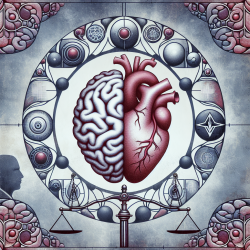The realm of quantum physics often seems distant from everyday applications, yet the study of quantum spin liquids (QSLs) offers intriguing insights that can inspire practitioners across various fields, including special education. The recent research on "Survival of itinerant excitations and quantum spin state transitions in YbMgGaO4 with chemical disorder" sheds light on the resilience of QSLs amidst chemical disorder. This blog aims to explore how these findings can be applied to improve skills in special education and encourage further research.
The Core Findings of the Research
The study focuses on YbMgGaO4, a triangular lattice antiferromagnet that exhibits no long-range magnetic ordering despite Mg/Ga site disorder. Through ultralow-temperature thermal conductivity and magnetic torque measurements, researchers observed a residual thermal conductivity term (?0/T) and a series of quantum spin state transitions at zero temperature. These observations suggest that a QSL state with itinerant excitations survives disorder in YbMgGaO4.
Implications for Special Education Practitioners
While the direct application of quantum physics to special education might not be immediately apparent, the principles of resilience and adaptability observed in QSLs can serve as powerful metaphors for educational strategies. Here are some ways practitioners can draw inspiration from this research:
- Adaptability: Just as QSLs adapt to chemical disorder, educators can develop flexible teaching methods that accommodate diverse learning needs and environments.
- Resilience: The survival of QSL states despite disorder highlights the importance of fostering resilience in students, helping them thrive despite challenges.
- Innovation: Encouraging innovative problem-solving approaches can be likened to the novel quantum states found in disordered systems.
Encouraging Further Research
The findings from this study open avenues for further exploration into how concepts from quantum physics can inform educational practices. Practitioners are encouraged to delve deeper into the following areas:
- Cognitive Flexibility: Investigate how cognitive flexibility in students can be enhanced through teaching strategies inspired by quantum adaptability.
- Interdisciplinary Approaches: Explore interdisciplinary collaborations that integrate concepts from physics into educational research and practice.
The study of QSLs offers a unique perspective on overcoming challenges through adaptability and resilience—qualities that are equally valuable in education. By drawing parallels between these fields, practitioners can enrich their approaches and contribute to innovative educational practices.










